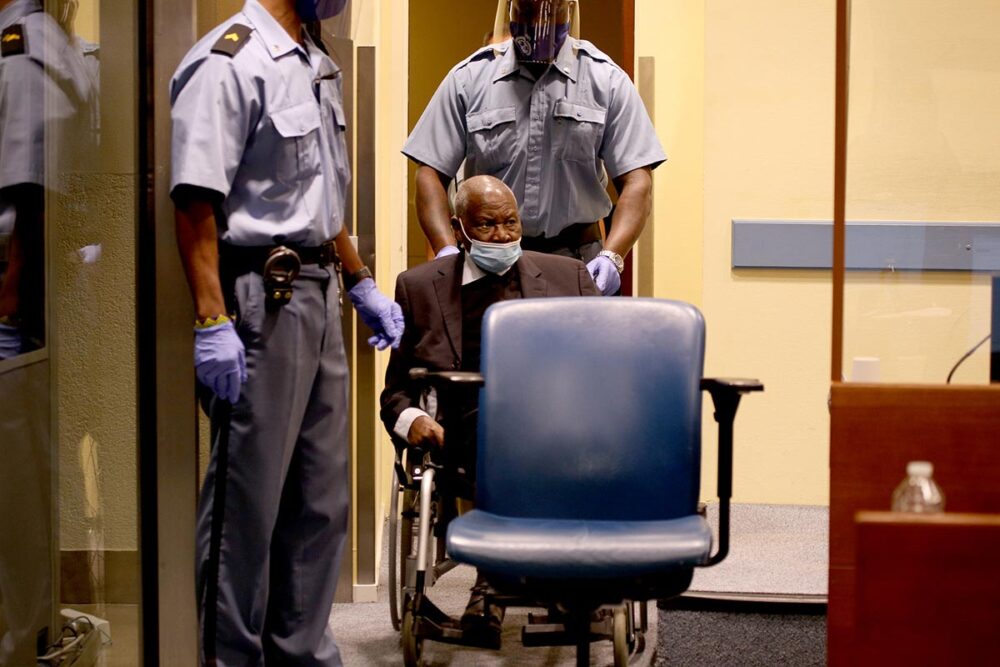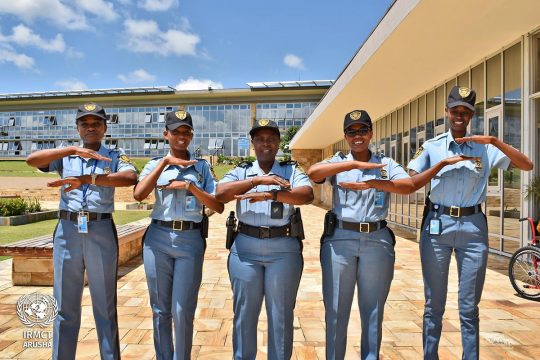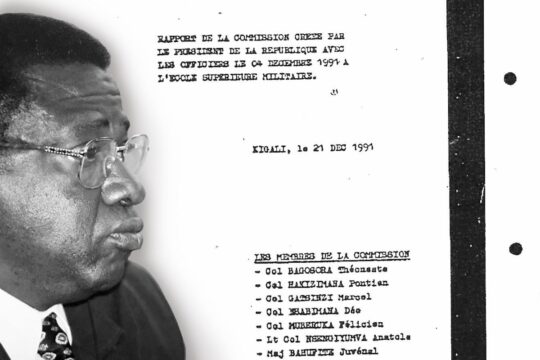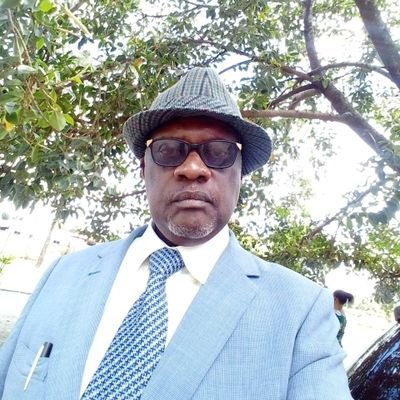“We are steadily advancing on the path of completion,” Judge Graciela Gatti Santana affirmed on 11 June, referring to the work of the International Residual Mechanism for Criminal Tribunals (the “Mechanism”). President of the heir to the UN tribunals for Rwanda and the former Yugoslavia, she was addressing the UN Security Council.
On the same day at the same podium, Belgian prosecutor of the Mechanism Serge Brammertz congratulated himself on having found all the Rwandan fugitives that had been indicted. This is after the arrest of Fulgence Kayishema in South Africa in May 2023, and the confirmation, in March and May 2024, that the last three wanted persons (Aloys Ndimbati, Ryandikayo and Charles Sikubwabo) had been dead for more than 25 years.
The Security Council took note of this in its June 27 resolution, reappointing Prosecutor Brammertz for a two-year term to complete the “remaining residual functions”. The Council urges him to “establish clear and realistic plans for the completion of all activities”. He will need to resolve several burning issues in particular: Fulgence Kayishema’s blocked transfer from South Africa to Rwanda; the lack of a host country for Félicien Kabuga, still detained in The Hague a year after his trial was halted; and the relocation of acquitted or released persons who have been under house arrest in Niger for two and a half years.
The South African impasse
Kayishema’s situation remains deadlocked. Since his arrest in South Africa on May 24, 2023, he has been caught between diplomatic frictions and bureaucratic strategies.
The latest development is a defence request for disclosure of documents that would be important in opposing his transfer to Rwanda. These documents, which are under seal, relate to a prosecutor’s request that Kayishema be handed over to the Mechanism. The defence cites correspondence between Brammertz and the South African authorities, in which the latter stated that they “could no longer assist [in tracking and apprehending Kayishema] so long as his arrest warrant provided for his transfer to Rwanda”. This led the prosecutor to request that the arrest warrant be amended to state that Kayishema would be transferred to the Mechanism as soon as he was arrested - despite the fact that the Mechanism transferred his case to Rwanda in 2012.
According to his lawyers, Philippe Larochelle and Kate Gibson, “Mr Kayishema intends to explore all possible means to oppose his transfer to Rwanda”. The prosecution refused to disclose the documents. According to Brammertz, “since Kayishema’s case has been referred to Rwanda for trial, disclosure is in the hands of the national authorities”.
However, in its decision of June 26, 2024, the Chamber instructed the Prosecutor to “make these documents public”, with the exception of the correspondence with the South African authorities. The Chamber ruled that since confidentiality was essential to protect the hunt for Kayishema, once he had been arrested there were no longer “exceptional reasons to maintain the confidentiality”. The prosecutor contested that decision.
According to sources close to the case in South Africa, affidavits and other testimonies have already been filed against Kayishema’s transfer to his native country. For the time being, he is being prosecuted for immigration offences. At a later date, the lawyers will certainly suggest another country where he could be tried. South Africa could be one of the options, given that the country’s laws give it jurisdiction over crimes of genocide. When contacted, Larochelle would not say more about the country or countries under consideration.
Kabuga released but then still detained
Former Rwandan businessman Félicien Kabuga remains in provisional detention despite having been released on health grounds a year ago this August. When the Appeals Chamber brought down the final curtain on his case, it asked the Trial Chamber to “expeditiously address the issue of Kabuga’s pre-trial detention”. The following month, the Trial Chamber ordered the Registrar “to engage with the Defence and use its good offices to provide all possible support in facilitating contact and communication between the Defence and the appropriate authorities of any national jurisdictions in which Mr. Kabuga seeks provisional release”.
Since December 2023, negotiations have been taking place with an undisclosed State. On January 18, 2024, the Trial Chamber issued a confidential order requesting this State, as well as the Netherlands as host country, to submit observations. On February 7, the State in which Kabuga had applied for provisional release replied that it refused to accept him. The Netherlands, for its part, stated that he could not be released on its territory because, according to Judge Bonomy, “he does not have the right to reside there”.
On February 15, the Chamber issued an order “in the interests of transparency” to add to the file a submission that the Registry received from the Rwandan Ministry of Justice, which considered Rwanda to be an appropriate destination for Kabuga’s provisional release. The Chamber noted that it would not consider this request, as “Mr Kabuga's provisional release in Rwanda is not a current issue”.
At a status conference on March 26, the defence was asked to provide an update on the steps it was taking, which it preferred to do behind closed doors. At the end of the in-camera session, some information filtered out: the presiding judge of the chamber, Iain Bonomy, informed the public that behind the scenes there had been “a very lively debate on the various possibilities relating to Mr Kabuga’s provisional release”; Judge Bonomy also asked to be informed of the progress of applications made to “two separate European states”; he also specified that, should none of these options progress, the Chamber should consider taking the initiative of finding a host state for Kabuga.
When contacted by Justice Info, Kabuga’s lawyer Emmanuel Altit and his family did not wish to talk. They have also said nothing about Kabuga reimbursing the funds that the Mechanism has spent on his defence, after acknowledging that Kabuga was not indigent. The Registrar’s decision of October 6, 2023 -- a first in the history of the Mechanism’s Arusha branch -- requires Kabuga to reimburse all his defence costs, since his assets and bank accounts in Belgium, the United Kingdom, Rwanda and Kenya would allow this, according to the Registrar's findings. These are estimated at USD 1,184,500 at the time of the decision
In this decision, the Registrar specified that it was subject to Kabuga being attributed funds and property frozen by the Mechanism at the Prosecutor’s request, to which he does not currently have access.
The unfortunate individuals in Niamey
The difficulty of relocating Kabuga reminds us of the six acquitted or released people who are still stuck in Niamey in Niger, under house arrest since Christmas 2021. Two of them have already died there: Colonel Tarcisse Muvunyi on June 10, 2023, and Colonel Anatole Nsengiyumva at the beginning of May this year. According to one of those who remain in Niger, “the living conditions were the cause of their deaths”. The Sahel heat for these people from East African temperate zones -- often without air conditioning in their prison-like residence due to lack of electricity – and depression due to their conditions of detention are all reasons he believes to be behind their deaths.
In addition, they are concerned about their possible transfer to their native country Rwanda, which has expressed its intention to receive them. In its resolution of June 27, the Security Council “notes that decisions on the relocation of persons who have been acquitted or completed their sentences should take into account inter alia the readiness of the State of origin to accept its nationals, the consent or any objections raised by the individuals to be relocated, and the availability of other relocation States”. On June 11, the Mechanism President admitted that their situation “is regrettably at an impasse and forms a sad reminder that obstacles persist in the area of cooperation”. She stressed that “sustained support from States and other stakeholders is essential to guarantee the efficient functioning of the justice process. Without it, the credibility of international justice as a whole is in jeopardy”.
Contacted by telephone, Innocent Sagahutu told Justice Info that “Rwanda is doing all it can to block us here. It’s time to look for a solution in countries where Rwanda has no influence. The Registrar tells us that such and such a country has expressed its intention to receive us, but later informs us that the country concerned has changed its mind, not wanting to spoil its relations with Rwanda”.
The Security Council calls on the Mechanism to produce “clear and focused projections of completion timelines for all of the Mechanism’s activities including, in particular, in relation to ongoing cases and the supervision of the enforcement of sentences at the earliest stage possible and to provide options regarding the transfer of its remaining activities in due course”.








